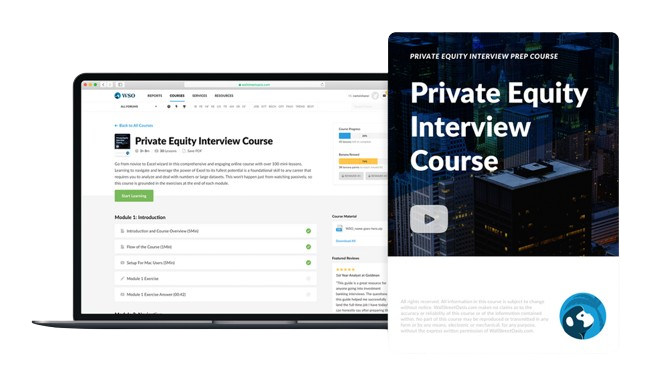Chartered Alternative Investment Analyst (CAIA®)
Designation aiming to promote education and development in the field of alternative investments
What Is A Chartered Alternative Investment Analyst (CAIA®)?
The Chartered Alternative Investment Analyst (CAIA) designation is offered by the CAIA Association, established by the Alternative Investment Management Association (AIMA). It is a global, independent, and non-profit organization.
Their goal is to promote the education and development of professions surrounding "alternative investments". The CAIA designation requires a significant amount of time, effort, and financial investment, making it a rigorous and challenging certification to obtain.
To become a charterholder, one must pass two exams, each of which takes an estimated 200 hours of studying to pass, and must fulfill other criteria. These exams are very difficult, with both exams having passing rates of about 60%.
CAIA charterholders often work in positions that involve portfolio management and asset allocation. The curriculum is focused on skills relevant to the valuation of alternative investments. Charterholders often find opportunities in firms that specialize in alternative investments.
These include hedge funds, private equity funds, and pension funds. A charterholder has the perfect skill set to thrive in these firms, as they have extensive knowledge surrounding alternative investments.
Key Takeaways
- The Chartered Alternative Investment Analyst (CAIA) designation is offered by the CAIA Association, aiming to promote education and development in the field of alternative investments.
- Eligibility criteria include completing a bachelor's program with professional experience, a four-year work experience, or being a Chartered Financial Analyst (CFA) charterholder.
- CAIA exams are self-study, with candidates expected to learn the material independently. The CAIA Association provides study guides and hosts orientations to assist candidates. Annual fees must be paid to maintain the designation.
- CAIA charterholders find opportunities in hedge funds, private equity firms, pension funds, and portfolio management roles.
- CAIA certification is globally recognized, making it relevant in alternative investment management worldwide.
How to Become a CAIA Charter?
Becoming a CAIA charterholder is very difficult and takes a lot of hard work and dedication. It requires a serious time commitment and can be an arduous process. In addition, becoming a charterholder requires passing two difficult exams and fulfilling other criteria.
Candidates must take the CAIA exams in a specific order, starting with the Level I exam followed by the Level II exam. However, it is essential to note that there are more requirements than passing the exam to qualify for the charter:
- A candidate must complete a bachelor’s program and one year of professional experience OR
- Complete four years of professional work experience OR
- The CFA charterholder is in good standing.
The CAIA Association, along with various resources and study materials, contributes to the accessibility of the test for a diverse set of international candidates.
If a candidate has earned the Chartered Financial Analyst (CFA) designation, they are eligible to skip the first CAIA exam. This is because most of the information on the first exam is already covered in the CFA curriculum.
CAIA Exam Fees and Structure
The first exam contains 200 multiple-choice questions to be completed in 4 hours. It is split into two sections of 100 questions, each 2 hours long, with a small break in between. It is offered in both September and March every year.
The exam is challenging, with the CAIA Association recommending that a candidate study for 200 hours.
The fees have been revised for the 2023 exams, featuring reduced fees for early registration and increased standard registration and retake fees (effective from September 2023 onwards).
The examination fees remain consistent for every level, with variations based on the registration date and candidate status (new or returning).
Enrolling in the program costs $400, and registering for each exam costs $1,395. If one registers through early registration, it costs $995. Retaking exams costs $795.
Check out the detailed breakdown of the fee structure below:
| Fee Type (for all levels) | CAIA Fees (per Level) |
|---|---|
| 1) Enrollment Fee (paid during the first CAIA registration) |
$400 |
| 2) Exam Registration Fee (only applicable to first-time Level 1 or Level 2 candidates) |
|
| Early Registration | $995 |
| Standard Registration | $1,395 |
| 3) Exam Registration Fee for Retakes (if applicable) | $795 (Sep 2023 onwards) |
CAIA Exam Details
The first exam focuses most on professional standards and ethics, introduction to alternative investments, and private equity.
The topics of the first exam are provided below:
- Professional Standards and Ethics
- Introduction to Alternative Investments
- Real Assets
- Private Equity
- Hedge Funds
- Structured Assets
The second exam consists of 100 multiple-choice questions and three sets of essay questions. It is split into two 2-hour sections with a small break in between. The multiple-choice section is worth 70% of the exam, while the essay section is worth only 30%.
The same as the first exam, the CAIA Association recommends studying for 200 hours for this exam.
Note
Historically, the passing rate for this exam has fluctuated between about 60-70%. Most recently, the September 2023 exam passing rate for exam 1 was 48%, and for level 2, it was 61%.
The topics of the second exam are provided below:
- Emerging Topics
- Ethics, Regulation, and ESG
- Models
- Institutional Asset Owners and Investment Policies
- Risk and Risk Management
- Methods for Alternative Investing
- Accessing Alternative Investments
- Due Diligence and Selecting Strategies
- Volatility and Complex Strategies
These topics are weighted equally except for emerging topics and ethics, regulation, and ESG. Therefore, these topics are not included in the multiple-choice section of the exam. They are, however, weighted similarly to other topics within the constructed-response section.
The CAIA curriculum is a self-study program. Therefore, candidates are expected to learn the material on their own.
The CAIA Association provides candidates with the curriculum and study guides for each exam to assist them in studying. They also host orientations for candidates to give information about the curriculum. In addition to official study guides, many companies offer study guides for the exams.
To stay in good standing with the CAIA Association and maintain the designation, a candidate must pay annual fees.
Career Opportunities for CAIA Charterholders
CAIA charterholders work in many roles, particularly those where alternative investment is very common. These roles span diverse sectors and require specialized knowledge of alternative investment strategies.
Some of the opportunities include:
1) Working in Hedge Funds (HFs)
Often, candidates with this certification find themselves working in hedge funds (HFs) as they are considered an alternative investment class.
Hedge funds are typically open to accredited investors who meet specific income or net worth requirements due to the higher risk associated with their investment strategies.
However, hedge funds attempt to earn higher returns than normal by following unconventional strategies, making them a perfect place to work for someone with the CAIA designation.
HFs frequently engage in alternative investment classes such as derivatives, real estate, land, and commodities. They can work in various positions within a hedge fund, with their roles determined by their expertise and experience in alternative investments.
2) Opportunities in Private Equity (PE)
Private equity is another common place to work for candidates with this accreditation. For example, venture capital firms invest in very young startup companies that are still private in exchange for a significant portion of equity.
PE firms also invest in mature companies and real estate or create funds of funds, which are investment funds that invest in multiple hedge funds.
These are all alternative investments, making CAIA charterholders the perfect candidates for positions within PE.
3) Roles in Pension Funds
Another area where CAIA charterholders often find themselves working is pension funds. These funds usually allocate their portfolio among stocks, bonds, and real estate.
Pension funds that allocate a small part of their portfolio to alternative investments such as derivatives and private equity are becoming more common. Therefore, a charterholder is a good fit for a consulting, board, or even a full-time role at pension funds because of their knowledge of alternative investments.
4) Involvement in Portfolio Management
CAIA charterholders are often involved in portfolio management and asset allocation. The curriculum focuses on alternative investments and how to value them. This makes it extremely useful in the construction of portfolios.
5) Relevance in Alternative Investment Management
The CAIA certification is highly relevant in alternative investment management, and individuals with the charter often secure positions in various related roles across the industry.
CAIA vs. CFA
While the CAIA and the CFA have numerous similarities, they are also very different certifications. Those differences are outlined below:
| Aspect | CFA | CAIA |
|---|---|---|
| Issuing Organization | CFA Institute | CAIA Association |
| Focus Area | Comprehensive curriculum covering a wide range of concepts, including economics, accounting, equity, fixed income, alternative investments, and portfolio management | Primarily focused on alternative investments |
| Certification Difficulty | Very challenging, requiring completion of three exams, 4,000+ hours of professional experience, and a bachelor's degree | Challenging but requires passing two exams |
| Exam Structure | Three exams with a lower pass rate | Two exams with a relatively higher pass rate |
| Recommended Study Hours | 300 hours per exam | Not specified |
| Average Time to Complete | It takes approximately 4 years to pass all three exams | Approximately 18 months to pass both exams |
| Eligibility Criteria | Bachelor's degree required, along with professional experience | A bachelor's degree is not mandatory, but relevant work experience is required |
| Curriculum Breadth | Broader, covering a wide range of finance topics, including those in the CAIA curriculum | Focused primarily on alternative investments |
| Charter Creation Year | Established in 1963 | Established in 2002 |
| Prestige | Highly prestigious in the finance industry | Recognized, but generally considered less prestigious than CFA |
| Salary Potential | Generally, higher salaries for CFA charterholders | Typically, lower salaries for CAIA charterholders |
| Skip Option | Charterholders may skip the first CAIA exam and take the second exam to earn the charter | Not specified |
Let's understand the difference between CAIA and other financial designations as well:
| CFA | CPA | CAIA | CFP | FRM | |
|---|---|---|---|---|---|
| Number of Levels | 3 | 1 | 2 | 2 | 2 |
| Costs | $2,550 to $3,450 | $1,000 to $3,000 | $3,000 | $2,000 | $1,500 |
| Exam Pass Rate | 30-50% | 40-50% | 70% | 67% | 40-50% |
| Content Focus | Portfolio Management, Investments | Financial Reporting, Audit | Real Assets, Alternative Investments | Financial Planning | Financial Risk Management |
| Career Application | All Encompassing | Accounting and Finance | Asset Management | Retail and Wealth Management | Risk Management |
| Study Time (hrs) | 300-350 per exam | Varies | 200 per exam | Varies | 200-300 per exam |
| Completion Time | 3-5 years | 2.5 - 5 years | 1-2 years | 4 years | <1 year |
| Work Experience | 4 years | 1 year | 1 year | 3 years | 2 years |
More Resources
To keep advancing your career, the additional resources below will be useful:




or Want to Sign up with your social account?